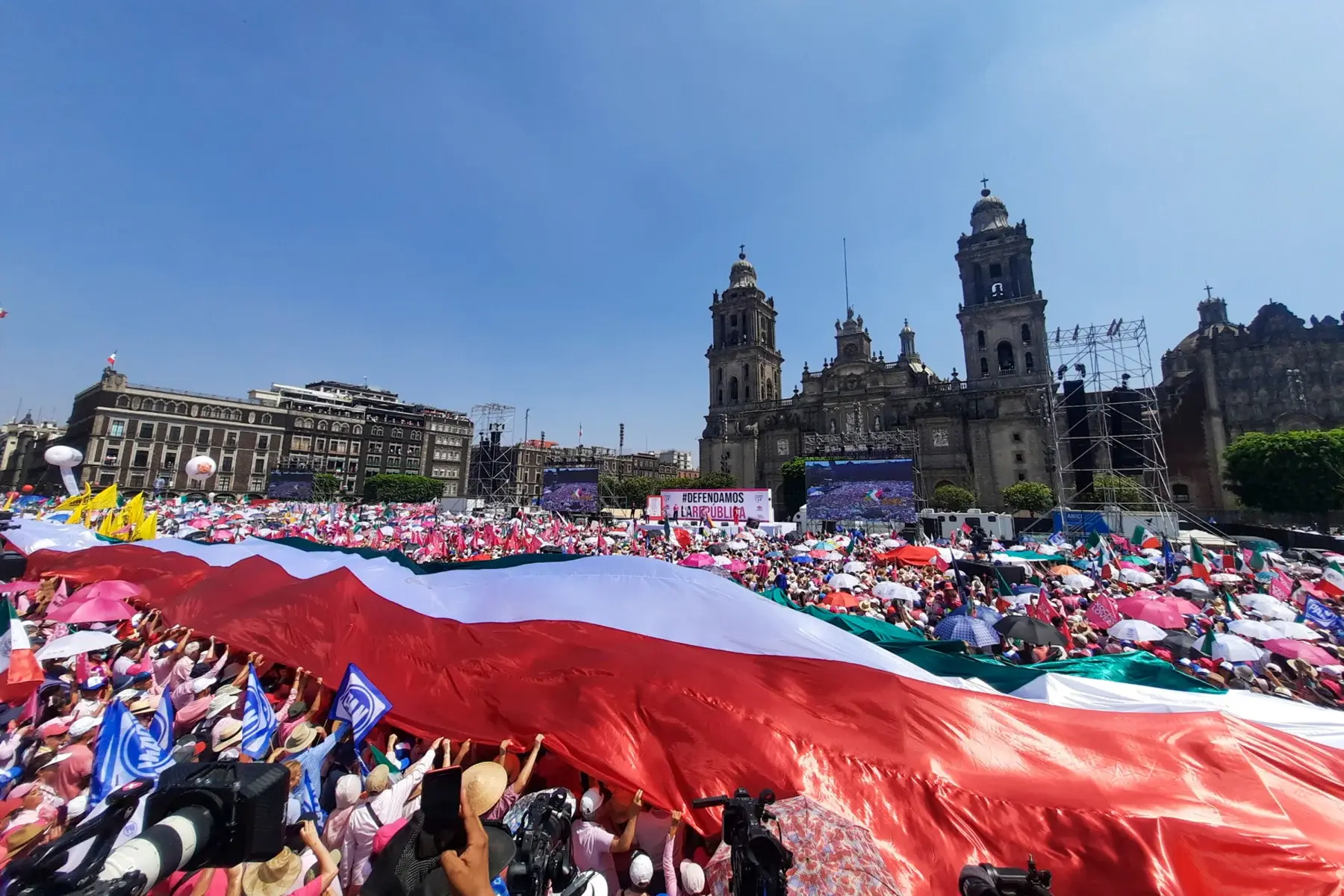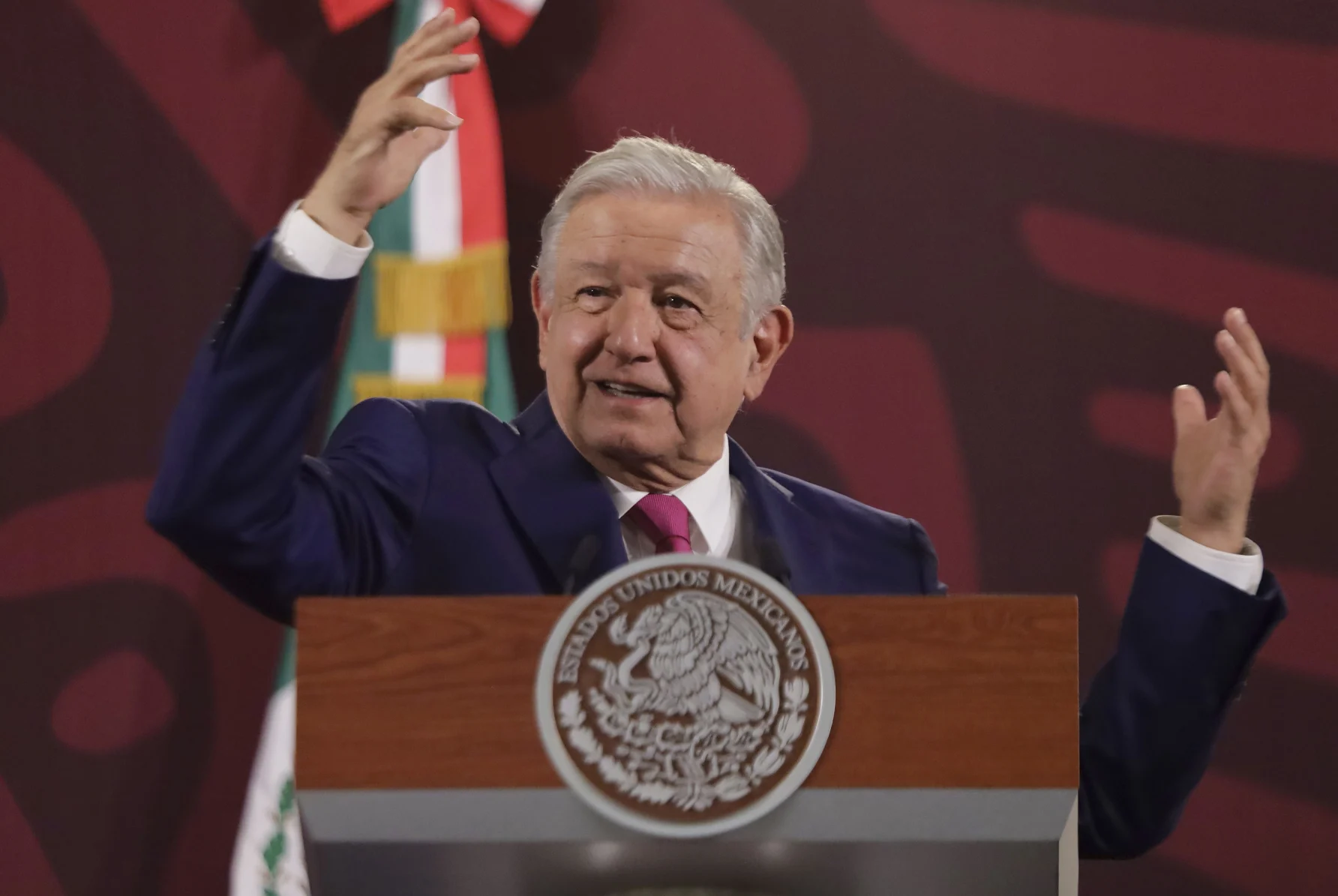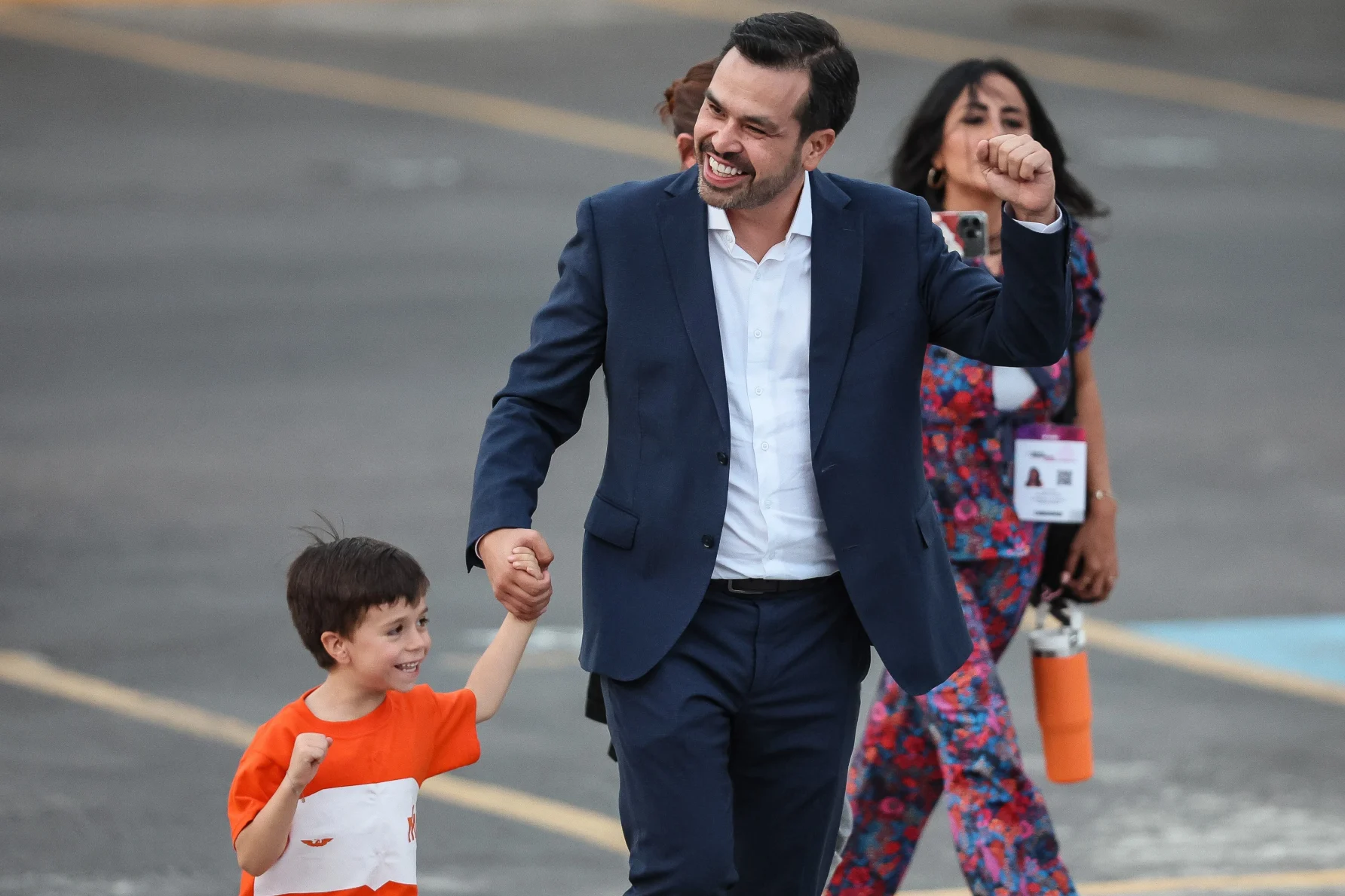
Politics & Society
A political watershed for Mexico?

Mexico’s 2024 General Election will be the largest in the country’s history with around 20,000 posts up for grabs – but the key race is the one to Palacio Nacional
Published 24 May 2024
Six years ago, we wondered whether Mexicans would shake up the establishment and elect the first left-wing government in decades. They surely did.
Now, few people can imagine another party making a home in Palacio Nacional (the Mexican equivalent to the “White House”) after the election on 2 June.

The country’s current president, Andrés Manuel López Obrador (better known as AMLO), has been a central figure in Mexican politics since the 90s and, while the constitution does not allow him to run again, AMLO remains the main actor in this electoral process: the 2024 General Election is basically a referendum on his government.
Most politicians are criticised because they break their promises; but AMLO’s main faults are to keep his, regardless of the cost.
For good or bad, he sticks to his guns despite challenging evidence. “I have other data” he infamously utters.

Politics & Society
A political watershed for Mexico?
For this kind of attitude, he has been depicted as a populist leader with authoritarian impulses. Stories are seldom that simple, though.
It is true that AMLO regularly thrashes his detractors in public, that his austerity measures unnecessarily cost lives, and that he has handed too much power and authority to the military forces.
However, AMLO also brought wages to an all-time high, delivered a world-class tourist train, and built an interoceanic corridor. Fulfilling yet another of his campaign promises, AMLO’s government transfers cash to 14 million families.
Importantly, it is the poorest people in Mexico who benefit the most; his policies have taken 3.5 million people out of poverty (a 52 per cent increase over previous administrations).

Rather than nuance the evaluation of his government, AMLO’s low lows and high highs seem to entice people’s support, as if they find some beauty in this political chiaroscuro (or contrast).
Perhaps the tipping point is AMLO’s modest demeanour.
Unlike the opulent lifestyle of his predecessors, AMLO takes the bus and stops at convenience stores to buy snacks or simply chats with people. He also visits remote and poor villages where no Mexican president has shown up before.

Politics & Society
Mexicans voted overwhelmingly for change. Will they get it?
Arguably, his personality alone has boosted Mexicans’ satisfaction with their democracy and trust in their government, because the hard data reveals that violence and corruption have not decreased significantly.
The 2024 General Elections will be the largest in Mexican history.
More than 20,000 posts are up for grabs – including the presidency and several state governorships. But violence has tainted the electoral process, with dozens of candidates killed; the current campaign is likely to become the deadliest ever.
Violence is seen as a top election issue and, while all candidates promise to end “narco politics” (the interference of cartels in political life), illegal campaign financing is an ongoing concern and some criminal groups even field their own candidates.
While there are three presidential candidates, Mexico will elect its first female president, unless something extraordinary happens.

The race is led by two women: Claudia Sheinbaum and Xóchitl Gálvez, and the only male candidate, Jorge Álvarez Máynez, critically lags behind.
Sheinbaum —established academic and former Mexico City mayor— is AMLO’s protégée and has promised to continue his agenda: consolidating his major infrastructure projects, carrying out his austerity measures and preserving his social welfare programs.
Sheinbaum’s job as mayor is approved by many but not without scandals.

Politics & Society
Brazil elections: Is democracy itself on the ballot?
In any case, she has a record of being more progressive than her leader in social issues that are still controversial in Mexico, including abortion.
Unlike AMLO, who tended to conservatism on cultural issues, Sheinbaum is seen as a real left-wing candidate.
Gálvez is the opposition’s last resort against AMLO.
She leads a multi-party coalition that has pledged to undo AMLO’s mistakes: defend institutionalised democratic checks and balances, demilitarise the country and withdraw the armed forces from civilian duties.
For many voters, however, she carries the weight of being endorsed by the parties responsible for the decades of corruption in Mexico.

According to most polls, Sheinbaum is leading the presidential race by at least 20 per cent. Her imminent victory has led some to call for the third candidate to decline in Gálvez’s favour.
It is Sheinbaum versus the world now, and she will probably win.
Some might argue that geographical distance makes this election irrelevant for Australia.
While it might be true that Australia has more pressing geopolitical worries, it is also true that Mexico is shaping up to be a regional leader.
AMLO’s motto “the best foreign policy is a good domestic policy” was supposed to guide his foreign policy to impartiality, if not indifference, to world affairs.
However, his government has taken some major diplomatic decisions, like offering political asylum to Bolivia’s Evo Morales (the deposed president) and proposing a global anti-poverty plan before the UN Security Council.
In a relatively unstable international arena, polarised by countries like China and the US, Australia would do well to keep an eye on Mexico’s future president.